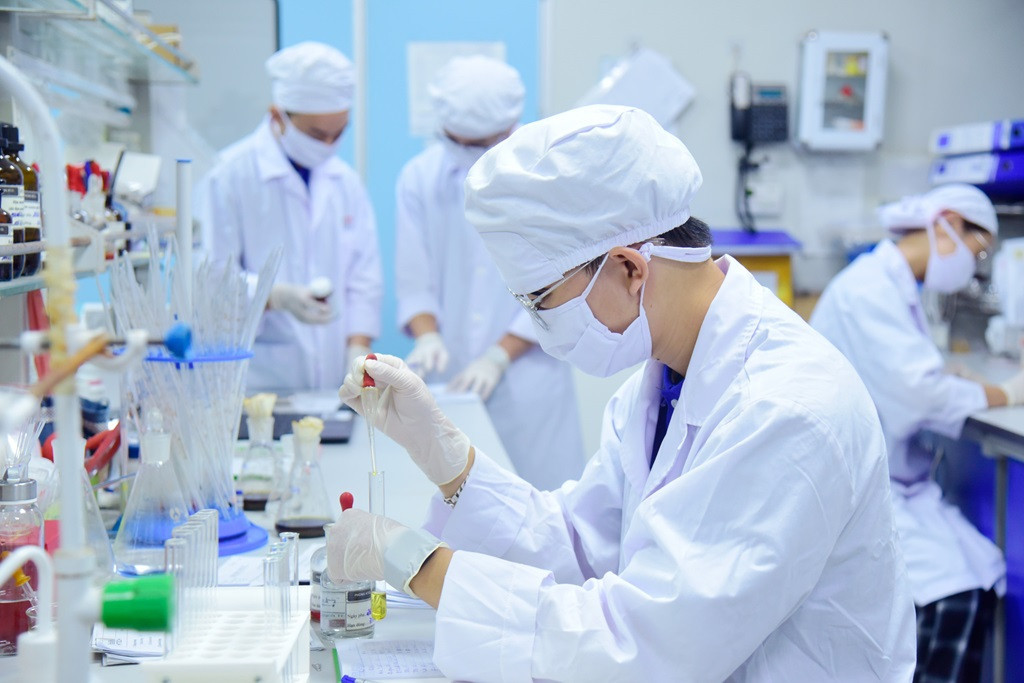Outstanding lecturers and scientists at Vietnam National University, Hanoi (VNU) can receive bonuses ranging from approximately $20,000 to $40,000 for holding international patents or transferring technology abroad.

This initiative is part of the university's newly approved project titled "Investment in the development of outstanding scientists and internationally recognized research groups." The plan is designed to strengthen the university's scientific output and international competitiveness, while fostering innovation in higher education, scientific research, and technology transfer.
The project seeks to build an elite team of scientists and globally competitive research groups at VNU. It aims to maximize resources and create an advanced research environment to attract and retain top scientists from both within and beyond the university.
To be evaluated as an outstanding scientist under the program, candidates must be full-time faculty members at VNU with at least a doctoral degree. They must also be involved in PhD-level training, have authored at least three articles published in reputable scientific journals or edited one monograph, or hold at least one patented invention that has been effectively applied and yielded socio-economic benefits. In addition, they must be proficient in at least one foreign language relevant to their field and must have led at least one research project funded at the VNU level or higher.
VNU has issued a set of evaluation criteria, focusing on leadership in academic activities, professional expertise, scientific contributions, international integration, and individual performance.
The project also outlines policies for developing outstanding scientists and internationally benchmarked research groups at VNU.
Outstanding scientists recognized at the VNU level will earn at least three times their total monthly income from salaries. Those meeting international standards will receive at least five times their monthly salary.
Bonuses will also be granted for breakthrough scientific publications. Articles in the top 1% of a field will receive between $8,000 and $12,000 each. Articles ranked in the Q1 category will be awarded approximately $4,000, while Q2 publications will earn $2,000 each.
In particular, inventors who register patents with international authorities such as WIPO, USPTO, or EPO will be rewarded between $20,000 and $40,000 per invention. Additionally, researchers who commercialize their innovations will receive 30% to 50% of the revenue from product commercialization. They will also benefit from income guarantees related to their research and teaching activities.
During their first three years at VNU, outstanding scientists will be prioritized to lead large-scale research projects. VNU-level scientists may be allocated funding of $40,000 to $120,000, while those at the international level may receive $200,000 to $400,000.
Scientists are also encouraged to establish spin-off companies, with special support provided for tax relief and initial investment, following the models used by Cambridge and Stanford universities.
They will receive preferential opportunities to teach in high-quality, internationally affiliated programs with attractive remuneration packages.
Additional privileges to attract top talent include nominations for leadership roles in key national and university-level science and technology programs. They will also receive financial support to attend international conferences annually (up to two trips for VNU-level scientists and up to five for internationally benchmarked scientists).
Moreover, they can nominate their PhD students for scholarships - one scholarship per year for VNU-level scientists and up to three per year for internationally benchmarked scientists.
After two years of service, outstanding scientists may take a sabbatical of three to six months for research at prestigious institutions such as Harvard, MIT, or Oxford.
Thanh Hung